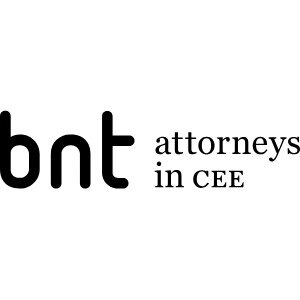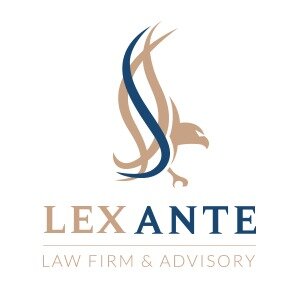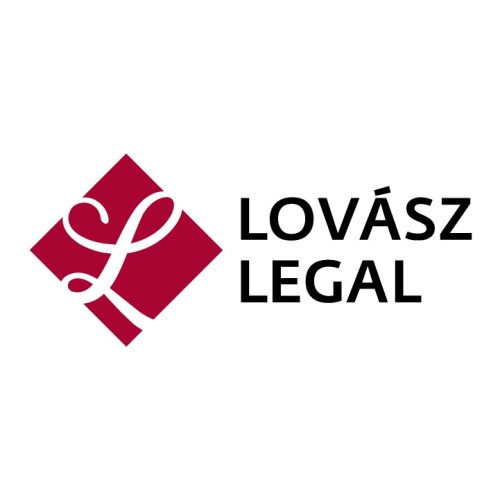Best Securities Lawyers in Slovakia
Share your needs with us, get contacted by law firms.
Free. Takes 2 min.
Or refine your search by selecting a city:
List of the best lawyers in Slovakia
About Securities Law in Slovakia
Securities law in Slovakia is a crucial segment of the country's legal framework, governing the issuance, trading, and regulation of financial instruments such as stocks, bonds, and derivatives. The securities market in Slovakia is regulated by the National Bank of Slovakia, which ensures transparency, fairness, and efficiency in the market. This regulatory environment aims to protect investors, maintain market integrity, and promote the development of the capital market.
Why You May Need a Lawyer
There are several common scenarios where an individual or a business might require legal advice in the field of securities in Slovakia:
- Understanding Regulatory Compliance: Navigating the complex regulatory landscape to ensure adherence to local securities laws and regulations.
- Issuance of Securities: Legal guidance is often necessary when issuing new financial instruments to comply with legal requirements and minimize risks.
- Investment Disputes: Resolving disputes between investors and issuers or brokerage firms through legal intervention.
- Market Fraud: Representation and advice in cases of fraud or manipulation within the securities market.
- Mergers and Acquisitions: Ensuring that transactions comply with securities regulations and protecting shareholder interests.
Local Laws Overview
Slovakia's securities laws align with EU directives, incorporating various regulations to safeguard the financial markets. Key aspects include:
- Market Regulation: The Financial Market Supervision Unit under the National Bank of Slovakia oversees market activities to avoid fraudulent actions and ensure fair trading practices.
- Prospectus Requirements: Companies must prepare and submit a detailed prospectus for approval before issuing securities to the public.
- Insider Trading: Strict laws prohibit insider trading and penalize any unauthorized use of confidential information for securities trading.
- Disclosure Obligations: Listed companies are required to comply with continuous disclosure obligations to provide timely and accurate information to the public.
Frequently Asked Questions
What is the role of the National Bank of Slovakia in securities regulation?
The National Bank of Slovakia regulates and supervises the financial market, ensuring that financial activities are conducted properly, and protecting investor interests by enforcing compliance with securities laws.
What documents are required to issue securities in Slovakia?
Issuing securities generally requires a prospectus, detailed financial information about the issuing company, legal disclosures, and compliance with corporate governance standards.
How can I report suspected securities fraud?
Suspected securities fraud can be reported directly to the National Bank of Slovakia's Financial Market Supervision Unit, either through official correspondence or via their designated reporting portal.
Are there specific securities laws for foreign investors in Slovakia?
Foreign investors must comply with the same securities laws as domestic investors but may be subject to additional restrictions related to foreign direct investments and anti-money laundering regulations.
What are the penalties for insider trading in Slovakia?
Penalties for insider trading can include fines, imprisonment, and a permanent ban from participating in financial markets, depending on the severity of the offense.
Can I trade securities electronically in Slovakia?
Yes, Slovakia supports electronic trading through registered stock exchanges and approved trading platforms that comply with regulatory standards.
What investor protections are available in Slovakia?
Slovakia offers various protections, including protective legislation, access to a financial ombudsman service, and compensation schemes to safeguard investors from financial misconduct.
How are mergers and acquisitions regulated in Slovakia?
Mergers and acquisitions are regulated under Slovakia's Commercial Code and involve specific procedures for protecting shareholder rights and ensuring regulatory compliance in securities transactions.
What taxes apply to securities transactions in Slovakia?
Securities transactions may be subject to capital gains tax, dividend tax, and potentially value-added tax (VAT), depending on the nature and structure of the investment.
Are there any investment opportunities unique to Slovakia?
Slovakia offers unique investment opportunities in sectors like automotive, technology, and green energy, driven by government incentives and favorable economic conditions.
Additional Resources
For those seeking more information, the following resources can be helpful:
- National Bank of Slovakia: The main regulatory body for financial markets and securities trading.
- Ministry of Finance of the Slovak Republic: Provides policy and regulatory updates related to financial and securities law.
- Slovak Investment and Trade Development Agency (SARIO): Offers guidance on investment opportunities and legislative compliance in Slovakia.
Next Steps
If you need legal assistance in securities, consider the following steps:
- Identify Your Needs: Clearly define your legal requirements, whether it's compliance, disputes, or transactional assistance.
- Consult a Specialist: Seek advice from legal professionals or law firms specializing in securities and financial law in Slovakia.
- Gather Documentation: Collect all necessary documents and information related to your legal issue to facilitate a smooth and efficient consultation process.
- Verify Credentials: Ensure that the lawyer or firm you choose is licensed and has a proven track record in handling securities-related cases in Slovakia.
Lawzana helps you find the best lawyers and law firms in Slovakia through a curated and pre-screened list of qualified legal professionals. Our platform offers rankings and detailed profiles of attorneys and law firms, allowing you to compare based on practice areas, including Securities, experience, and client feedback.
Each profile includes a description of the firm's areas of practice, client reviews, team members and partners, year of establishment, spoken languages, office locations, contact information, social media presence, and any published articles or resources. Most firms on our platform speak English and are experienced in both local and international legal matters.
Get a quote from top-rated law firms in Slovakia — quickly, securely, and without unnecessary hassle.
Disclaimer:
The information provided on this page is for general informational purposes only and does not constitute legal advice. While we strive to ensure the accuracy and relevance of the content, legal information may change over time, and interpretations of the law can vary. You should always consult with a qualified legal professional for advice specific to your situation.
We disclaim all liability for actions taken or not taken based on the content of this page. If you believe any information is incorrect or outdated, please contact us, and we will review and update it where appropriate.
Browse securities law firms by city in Slovakia
Refine your search by selecting a city.














